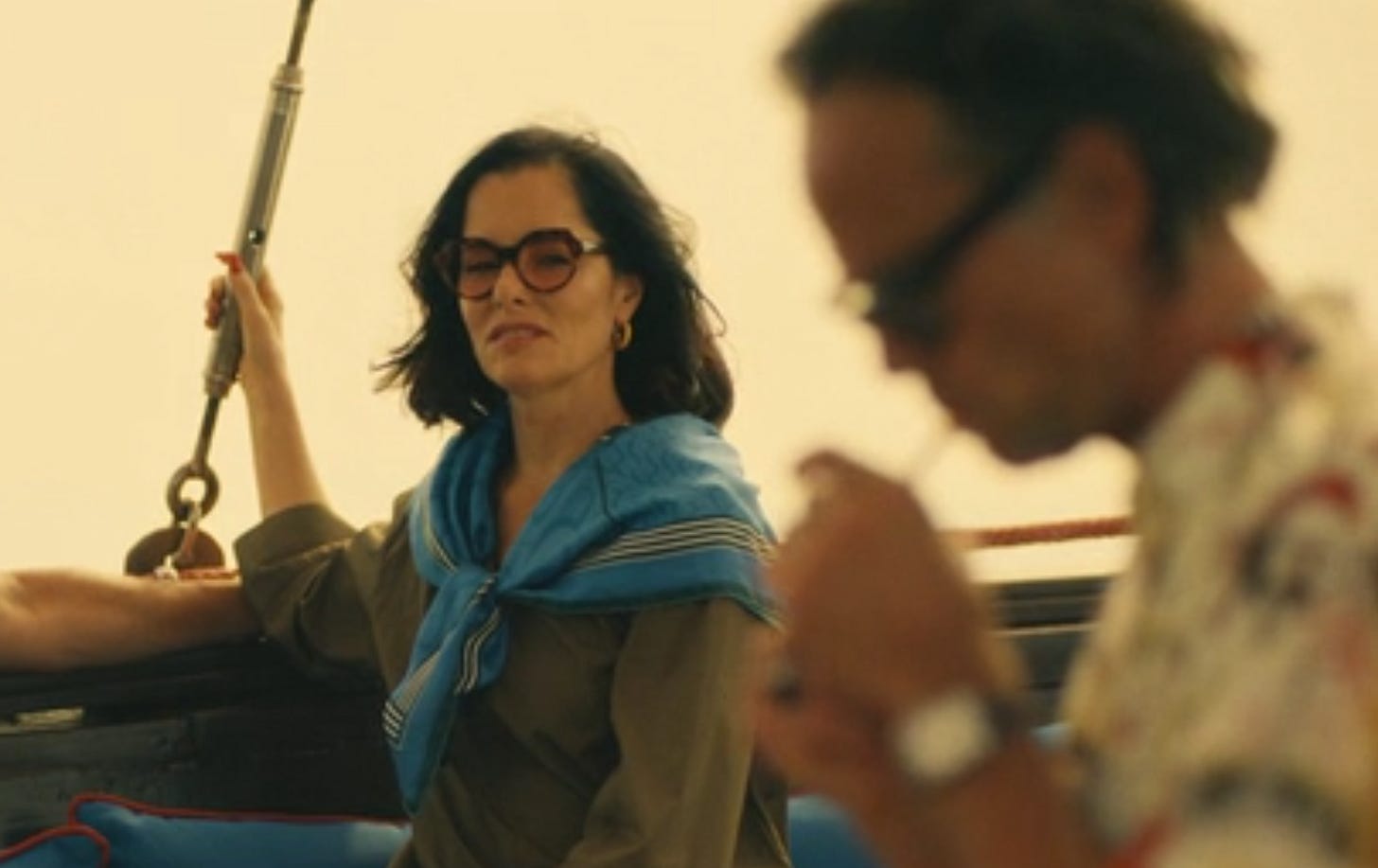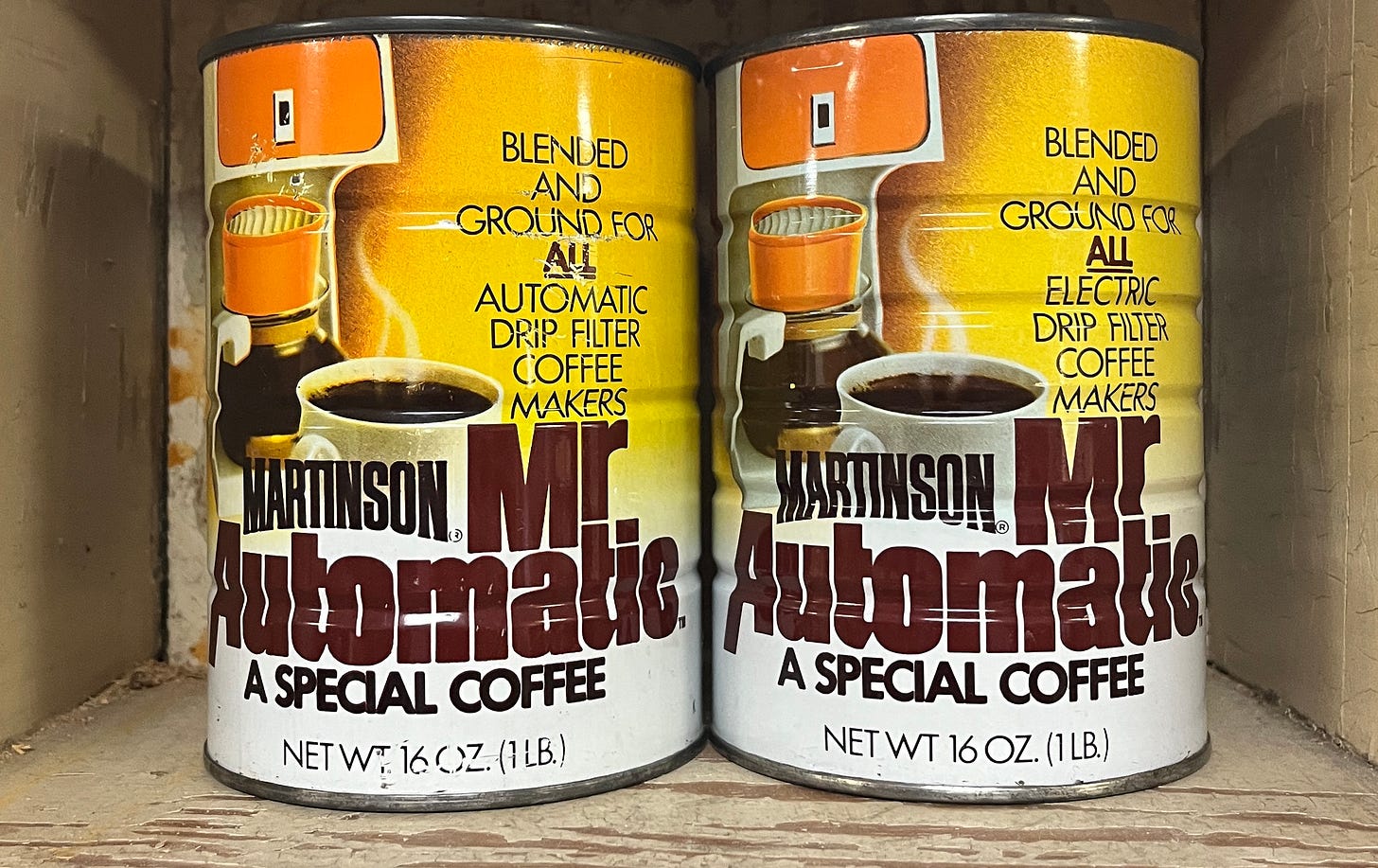Dear Friends:
Have you done The Artist’s Way? I’m doing The Artist’s Way. I started just last week, which was our spring break, and like everyone seemingly ever who’s done TAW, I’m grumpy about the labor of Morning Pages—3 handwritten pages done first thing in the morning without stopping, stream-of-consciousness–style. The idea is to expunge from your brain all the mess cluttering it up, so you’re free to start being an artist. I only do 2 pages, because that’s enough, but I do them every day.
I’m looking to change my relationship to writing, after a friend suggested last year that I figure out a way to do just that. I’d been complaining about my unhappiness with writing. Writing, especially talking about writing, is my job, and it’s easy to get weary of one’s job. TAW is a chance to think differently about all this.
A friend who is also doing Morning Pages recently suggested I think of them this way: What would it feel good to write right now? It’s an extremely useful question, particularly because I never have a clear answer.
What’s that about?
Yours:
Dave
Endorsements
1. The new Matlock
Fans of Shenny will know my love for older ladies solving mysteries, so of course I’m into the new Matlock. There’s a new Matlock, did you know? Kathy Bates is Matlock! Well, not exactly. Without spoiling too much of the pilot, in this new Matlock universe, the Andy Griffith Matlock exists, characters joke about that old show, and so ‘who is Matlock’ is a kind of ongoing puzzle. Also, because it’s 2025 and Matlock’s now a woman,1 the show doesn’t have to placate wary, suspicious seniors and can be totally woke now. Matlock uses the fact that people underestimate older women to win cases that prevent landlords and CEOs from fucking over black and brown folks, and the writers complicate Matlock enough, and up the support of her colleagues, that she doesn’t become some acrid white savior. It’s moving as hell. Plus it stars human Siberian husky Jason Ritter in a supporting role. I mean just look at him:
2. Parker Posey’s Face in The White Lotus
I was not a fan of this show’s first season, and skipped its second. But when N. showed me that Parker Posey was in it, I was willing to watch the pilot. Sorry gays: we and this show are better for this usurpation of Jennifer Coolidge’s usual role. Posey’s far more nuanced and yet plenty over-the-top as a wealthy North Carolinian wife and mom. Her face is sometimes a frozen Botox mask and other times a slowly shifting bank of clouds. It’s in the eyes mostly. There’s a way she’s setting them into this shape of vacant distrust, like this moment from the first episode where a nearby character lights a cigarette on a boat:
And you see it even when she’s in a seemingly good mood:
In only 3 years of being an Alabamian, I saw that look plenty. The season’s good overall, but each episode I keep looking for her.
Masculinities for Everybody
I’ve been worrying masculinity these last few months, chewing it like a wad of gum I can’t decide whether to spit out. It’s a word, I’ve found, that few like to hear in their mouths.
Last weekend, I wrote a whole Main Matter on masculinity where I thought I had the answer. What was even the question? Oh, it was a doozy:
What might it mean to be more masculine, to those people (they can be of any gender) looking to do so, in ways that don’t become toxic and harmful—particularly to those people (also: any gender) who aren’t interested in masculinity?
I even found an anthropologist to cite! Looking at cultures across time around the world, he (maybe key to note the anthropologist was male) saw that cultures valued their men as (a) providers, (b) protectors, and (c) procreators. There was a whole ¶ about how seeking out core aspects of masculinity was not an exercise in denying such values and attributes in women. ‘Women, too, can choose masculinity,’ was the idea.
I was close, is what I mean. I really thought I—versed in Judith Butler et al. and cognizant of the dangers of gender essentialism—had figured some big stuff out.
Turns out I was looking at too small a picture.
Because look, here’s Akwesasne Mohawk journalist and historian Doug George-Kanentiio, writing on practices among the Iroquois:
In our society, women are the center of all things. Nature, we believe, has given women the ability to create; therefore it is only natural that women be in positions of power to protect this function....We traced our clans through women; a child born into the world assumed the clan membership of its mother. Our young women were expected to be physically strong....The young women received formal instruction in traditional planting....Since the Iroquois were absolutely dependent upon the crops they grew, whoever controlled this vital activity wielded great power within our communities. It was our belief that since women were the givers of life they naturally regulated the feeding of our people....
Reading about a culture valuing women as (a) providers, (b) protectors, and (c) procreators, I realized the obvious: all my thinking about masculinity—however well-intentioned—was being framed and shaped by growing up in a culture that values men over women.2 In such a culture, ‘masculinity’ will inevitably encompass any attribute the culture values. Smarts? Strength? Courage? Owning the libs? All so masculine.
To return to the doozy Q: To be more masculine, even in ways that don’t become oppressive, means only to perform in ways this culture will value you.
And that’s how I ended up writing a whole Shenny encouraging people to play by our patriarchy’s rules.
I’ve written about this before:
For years, I did a lot of low-level policing of my hands and wrists. I talk with my hands a lot, but I felt if I kept my wrists strong and solid, my hands wouldn’t flop around like a faggot’s. It worried the hell out of me. Now, sometimes when I’m moving through my house, I like to let my wrist go very limp, trounce it around a little, just to feel the pleasure of having a limp wrist sometimes.
This is a vignette about being trapped by masculinity. (That’s the ‘worried the hell out of me’ part.) Wanting to be more masculine, to fend off all the fag-accusations, I became a casual scholar of it. Watching men. Trying to do and say what they did and said. Men chased women. Once I realized I didn’t want to do this, I saw I didn’t have to do this.
And then I was free of the trap.
Coming out gave me a key. Now, I can let myself in and out of the trap any time I want. (It’s fun in there sometimes!) For many people, most of them men, the trappings of masculinity paper the vision board of their happiest life, and why shit on their vision? And why not accept that the Just Be Queer key isn’t available to them?
Traps help anxious people feel safe, like your dog after kennel-training. My aim in thinking about masculinity wasn’t to prettify the trap—like pouring sand into a terrarium in hopes your hermit crab thinks it’s at the beach—but instead to make the experience of being trapped, of performing masculinity, more beneficial, or favorable, in a time when we’re being just crushed by horrible men.
By ‘anxious people’ up there, I mean boys and most men. I was probably out of college when a friend of mine asked, ‘Do you refer to yourself as a man?’ Meaning no longer ‘a boy’. We both agreed no way. ‘A man’ was something other than what we were. Be a man, etc.
It was a similar knot of anxiety I see in my students who aren’t sure whether to call themselves a writer. They’re waiting for someone—me, perhaps—to tell them when, given what they’ve achieved, they’ve become A Writer.
‘Imposter Syndrome’ is our present term for it. Writers don’t exist, I tell students. They are a fiction. What’s real is that people write. Also: creating is more interesting than being. So just keep writing, keep creating, and you’ll already be, by the doing, the thing you’re anxious to become.
What’s the doing of masculinity? What are the processes by which the group ‘boys’ becomes the group ‘men’ and not the group ‘shitty toxic men’?3 We seem to have no good answers. This, argues sociologist Jo Freeman, is a very big problem. Freeman has written about what she calls the ‘tyranny of structurelessness’, in which a lack of leadership and guidelines for members ensures any group’s dysfunction.
By ending the conversation on the fact of gender being a construct, we on the Left are leaving the group ‘boys’ with a total lack of structure. And re the questions I just posed above, some of us do have answers. They are the Joe Rogans and Jordan Petersons of the world, and in 2025 we’re living in the outcome of men like them being the guardians of masculinity.
The tricky bit seems to be (a) accepting that gender is a performance and (b) allowing folks to perform accordingly. And then to identify aspects of the performance of masculinity that affirm both the performer and their audience.
In other words, I want it to feel good to be masculine. And I want others who are not interested in being a man to feel relaxed and relieved when an interested party is working at being more masculine.
I mean ugh. That the above sounds so utterly disgusting means we’ve got a lot of work to do.
In a future Shenny, though. Or a series of Shennys? I like writing and thinking about masculinity because it’s so repellant among us in the queer leftist circles I travel in, and also because it’s the one surefire thing to give me a boner. That’s a conflict I don’t want to try to dissolve or erase. Instead I want to step into it, like a hug being offered.
This week’s thing I didn’t buy at the antique store is this special coffee named, again, after a man:
Of course she’s a white woman, because it’s only 2025 and look at who the president isn’t.
If this seems like an argument instead of a fact, or like a ‘controversial’ statement, I invite you to look at the White House, the U.S. Senate, corporate CEOs, the police force, do I need to go on?
And to broaden the scope: What are the processes by which ‘girls’ comfortably become ‘masculine girls’? What exactly does a nonbinary person do to ‘present masc’?

















Yesss! I agree about the characterization of Posey--love the description of her face "shifting bank of clouds." P.S. I am trying to get a little substack going myself though as a poet, prose can be agonizing because I stew over every sentence... you and I met in Mathias' Hopkins workshop a while back. Love your work on here!
This is great, please write a series.